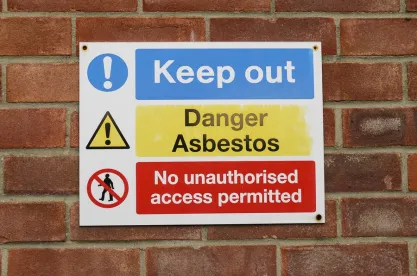In a significant reversal of a judgment for a cedent after a jury verdict, the Second Circuit Court of Appeals has held in favor of the reinsurer in an important follow-the-settlements case. The court agreed with the reinsurer that, as a matter of law, it was not obligated to the cedent because the losses did not exceed the attachment points for the reinsured umbrella policies.
In Utica Mutual Insurance Co. v. Fireman’s Fund Insurance Co., No. 18-828 (2d Cir. Apr. 28, 2020), after a jury verdict, the district court entered a judgment in favor of the cedent in an asbestos allocation reinsurance dispute. The breach of contract dispute centered around a series of facultative certificates reinsuring a series of umbrella policies. The umbrella policies sat on top of a series of primary policies issued by the cedent. The certificates provided that the reinsurer’s liability followed that of the cedent consistent with the terms of the umbrella policies. The umbrella policies provided that the cedent was “liable only for the ultimate net loss resulting from any one occurrence in excess of . . . the amounts of the applicable limits of liability of the underlying insurance as stated in the Schedule of Underlying Insurance
Policies.”
The schedules included separate provisions for bodily injury claims and property damage claims. Aggregate limits were only provided for the property damage claims. The facultative certificates each had a follow form clause and a follow-the-settlements provision.
In the underlying asbestos coverage dispute with the insured, the parties ultimately settled. In the course of the settlement, the parties agreed that there were aggregate limits in the primary policies and that those limits had been exhausted. The cedent sought reinsurance recoveries under the certificates and when the reinsurer did not pay, brought this action for breach of contract. The case came down to whether the umbrella policies contained aggregate limits because without aggregate limits, the individual bodily injury claims were too small to reach the umbrella policies (and therefore the certificates). The district court instructed the jury that they only had to determine if the settlement was objectively reasonable. The jury found for the cedent and judgment for the cedent was entered.
In reversing, the circuit court concluded that the reinsurer was liable only if the losses exceeded the limits as stated in the schedules. While the asbestos bodily injuries were clearly covered occurrences, the applicable limits of liability for those claims were those stated in the schedules for bodily injury. Those limits included aggregate limits and for bodily injury, there were no aggregate limits stated. The court rejected the cedent’s argument that only the occurrence limits must be listed should be considered and not the aggregate limits.
The court also rejected the cedent’s argument that the follow-the-settlements provision bound the reinsurer to the cedent’s claims determination. The court noted that the follow-the-settlements doctrine does not alter the terms or override the language of the reinsurance contract. The court held that the cedent’s theory directly contradicted the relevant language in the certificates and the umbrella policies. The reinsurer cannot be held accountable for an allocation that is contrary to the express language of the reinsurance contract, said the court. The court found that the cedent’s reading would essentially render the follow form clause in the certificates and the definition of loss in the umbrella policies meaningless, and “would be contrary to the parties’ express agreement (citation omitted).”
The court defended its ruling by stating that it was consistent with the long line of relevant follow-the-settlements cases that hold “to trigger deference under the follow-the-settlements doctrine, the settlement decision in question must be reasonable and in good faith but must also be within the terms of the reinsured policy.” The court noted that the reinsurer was not entitled to a de novo review of the cedent’s decision-making process or allocation decisions. But the court held that “here, the relevant policy terms are unambiguous, [and] a reinsured cannot insulate itself from the application of those terms under ‘follow-the-settlements.’”
The court concluded “that the umbrella policies unambiguously define their attachment point by reference to the underlying limits of liability ‘as stated in the Schedule[s].’ Where the losses in question did not exceed the limits stated for bodily injury in the Schedules, [the reinsurer] had no obligation under the reinsurance contracts to pay for those losses.”




 />i
/>i
